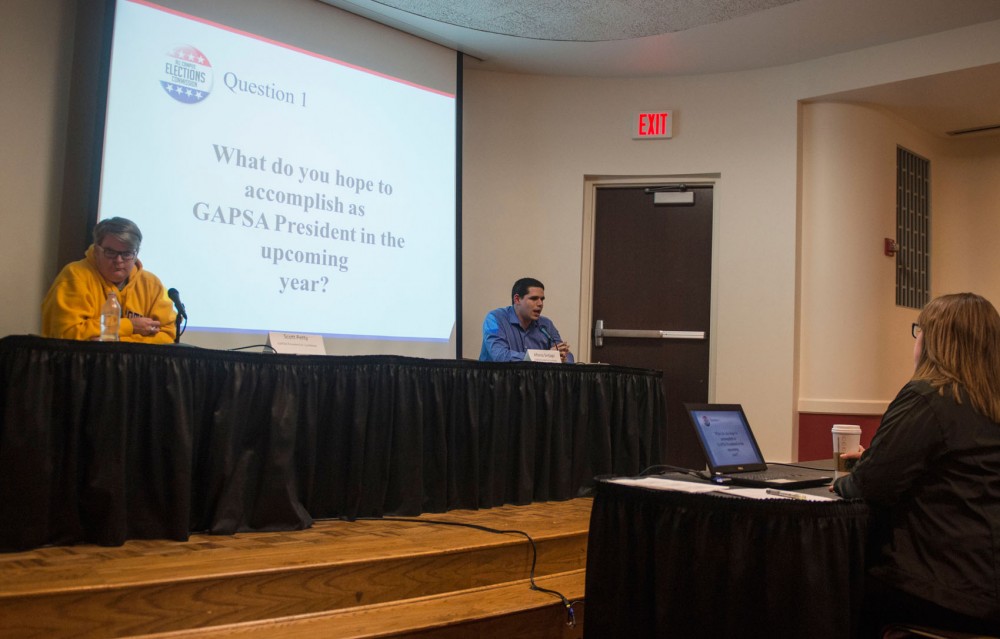After a year in a graduate student government plagued by controversy, the next president of the University of Minnesota’s Graduate and Professional Student Assembly will likely face continued criticism of how the group’s executive board functions.
Alfonso Sintjago and Scott Petty, the two candidates vying for the spot, outlined their plans to address these issues and reform GAPSA at a debate Monday night in Coffman Union.
Vice Provost for Student Affairs and Dean of Students Danita Brown Young moderated the debate, which was supervised by the All Campus Elections Commission.
GAPSA’s leadership has been subject to some public criticism in the past year, including issues with how the group initially handled its fees request.
The candidates said GAPSA’s executive board didn’t share its fees request with council members before submitting it.
Petty said he wants to eliminate this lack of transparency by being more open with questions from the Student Services Fees Committee and involving more people in creating GAPSA’s fees request and budget.
Sintjago, who was a member of GAPSA’s executive board when this year’s request was sent, said what happened was “unacceptable” and can’t happen again.
Next year’s proposed budget was based on one from a previous year, he said, which he plans to change if elected president. He said GAPSA’s budget needs to be forward-thinking in upcoming years.
Both candidates expressed concern about resolving the Council of Graduate Students’ messy split from GAPSA, effective this summer.
“Conflict with COGS seems to be the excuse for GAPSA’s failures, and you can’t use that as an excuse,” Petty said.
Sintjago said it’s important for GAPSA to have a good relationship with COGS, but he stressed the importance of reaching out to all GAPSA member councils.
Much of the candidate’s discussion Monday night focused on the details of the split, however, rather than providing a concrete solution for how to fix problems resulting from it.
Petty and Sintjago agreed that GAPSA’s leadership has too much power, and each said that if elected, they would create a more horizontal leadership structure.
Sintjago said GAPSA recently revised its bylaws and constitution to redistribute power, but those changes haven’t yet been fully implemented.
If elected president, Sintjago said he’d ensure this revised leadership structure would take effect.
Petty, however, was critical of these changes and suggested a different plan that focuses on greater proportional representation.
The two candidates also agreed that graduate students need to be proportionately represented in the student senate. At a senate meeting earlier this month, a bylaw amendment was proposed to guarantee senate seats for graduate students.
“We are a vital part of this body,” Petty said. “The student senate must have GAPSA student representation to be a student senate.”


